Lauren Bisan-Etame
Player, Arsenal, 2000-2007
When I was a child, I never thought one day I’d be part of Arsenal’s history.
Just like many other kids in Seville, my dream was to play for Sevilla, the club I supported.
I started playing at my neighbourhood team, Montequinto, in the city of Dos Hermanas. My parents are from Equatorial Guinea but moved to Spain after a few years in Cameroon, where I was born.
After I scored 56 goals in one season, I signed up for Sevilla’s academy. Then I went to play in the Second Division with Levante, and finally to Mallorca to fulfil my dream of playing in La Liga.
My two years at Mallorca were great in every sense. It was a team that had a lot of well-structured work behind it, carried out with a lot of patience. We were led by the coach Héctor Cúper (below) and Mateu Alemany, who was the sporting director.
What I liked most about Cúper is how he insisted on the cohesion of the group, where the collective was above the individuals. He would talk about that philosophy constantly. It was that unity that made us a brilliant team on a tactical level. Every player was perfectly organised; everybody knew what they had to do on the pitch.
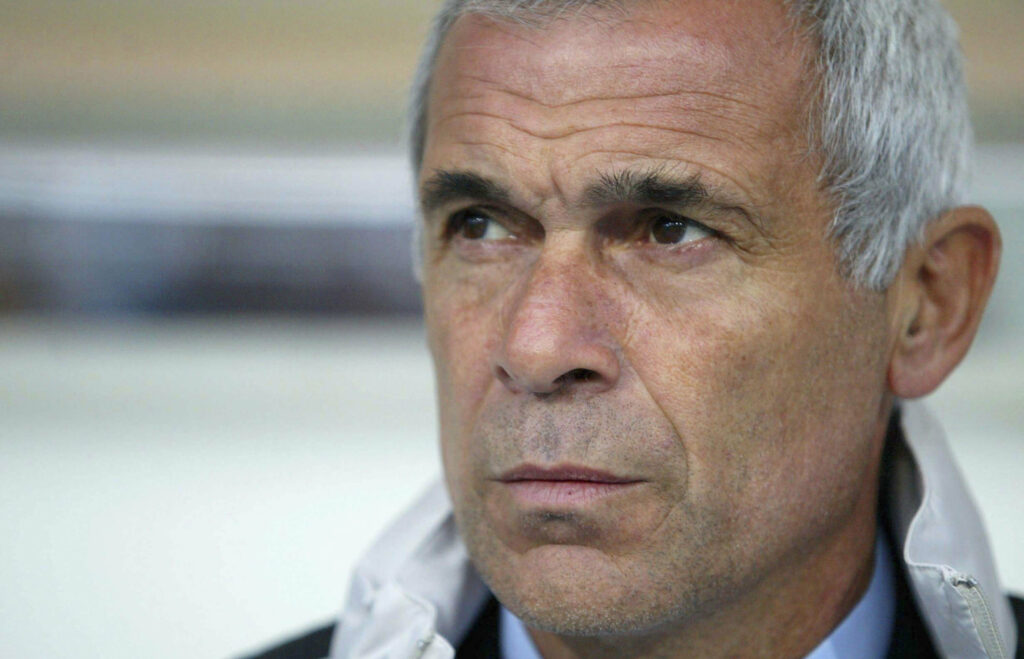
Cúper taught us a lot about tactics. He is one of the best coaches when it comes to occupying the spaces before counter-attacking. We would attack like bullets after recovering the ball.
His training sessions are based on deep analysis. In that sense, he is a lot like Marcelo Bielsa, although their playing style is very different. Everything that happened on the pitch had been carefully prepared during the training sessions.
“I wanted to play for Spain – I consider myself to be Spanish”
Let me give you an example. We were playing against Barcelona in La Liga. It was a Barcelona team that had Luis Figo and Rivaldo out wide. That’s all...
The week before the match, we were preparing situations of two-against-one on the flanks. We were always trying to have a numerical advantage so we could defend against them with the closest midfielder to the flank. Time after time, until we could do it automatically during the match.
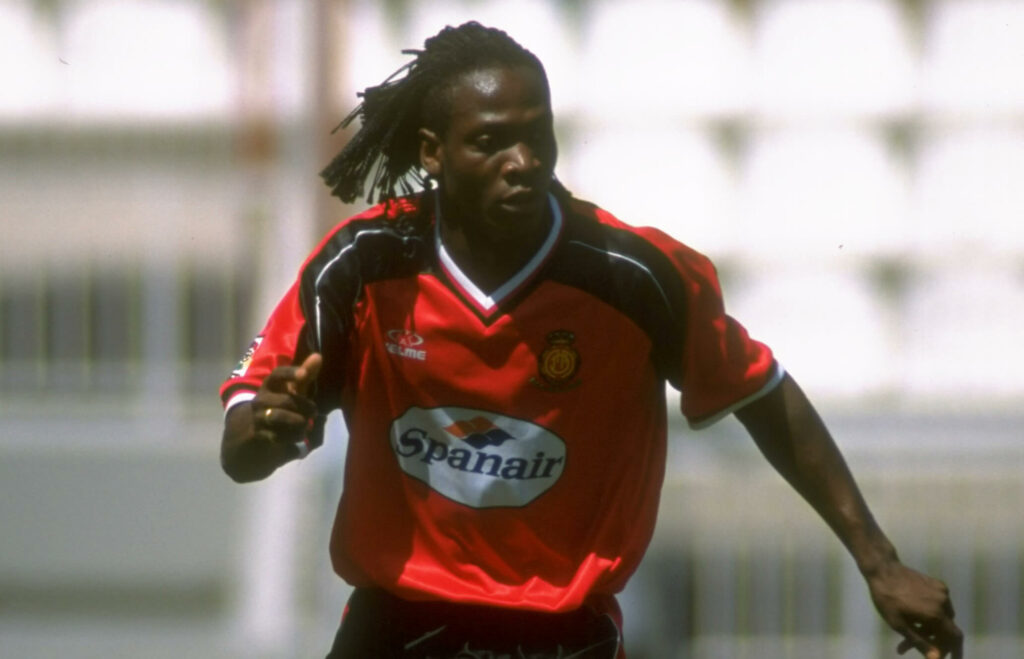
All of that allowed us to win the Spanish Super Cup, and we also went close in the UEFA Cup Winners’ Cup. It has been a long time since the final against Lazio, in 1998/99, but still now I go over and over that match in my head.
Especially one single moment, when their goalkeeper, Luca Marchegiani, stopped my shot that was going in the top corner. Had I scored, I am sure that would have been the end of it, but that’s the way football is. Just a few minutes later, Pavel Nedved scored with a volley.
That defeat was hard to take – it still is, even now. But losing that final at that stage helped me to face the other finals I went through later in life, with Arsenal and with Cameroon.
“Everything was ready for me to sign Real Madrid’s contract”
I would have liked to play for Spain, because I consider myself and feel Spanish, but I had to choose between the two national sides. At that time, I was still in the second division, with Levante. It was uncertain if I would ever have the opportunity to play for Spain.
That weighed a lot, and I preferred to take advantage of the certainty that Cameroon was offering to play at France '98. In the end, playing that tournament earned me a contract with Mallorca. That was very important, but even more important was to win an Olympic gold in 2000 – I scored three goals in that tournament – play at two World Cups and win two Africa Cup of Nations titles with Cameroon.
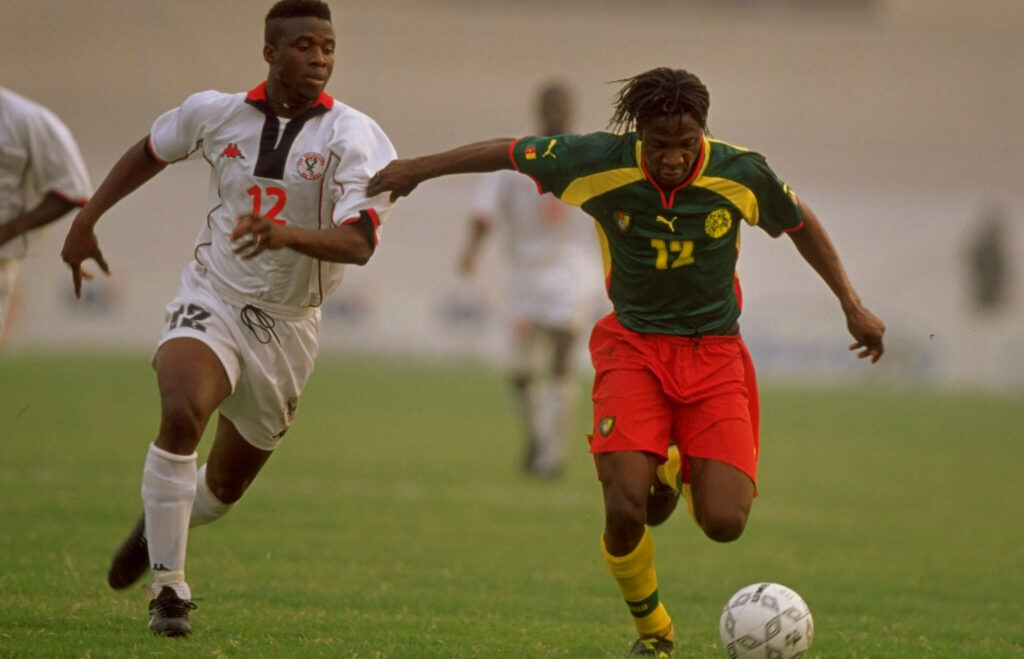
Returning to the thread of my tale, that defeat in the final with Mallorca was preparation for what was about to come. And what was about to come was not going to be Arsenal, initially.
My destination after those two marvellous years at Mallorca was Real Madrid. Everything was ready for me to sign the contract. Right before I did, though, my agent got a call from Arsène Wenger asking him not to sign.
“I was convinced that Arsenal was a better opportunity”
“Come to London, we want to talk to you,” he told him. So we did. We met at David Dein’s house, who was then the Arsenal vice-president.
That was the first of many days that I spent with Wenger. I always felt, ever since that first moment, that the feeling he transmitted was one of assurance, calm and total confidence.
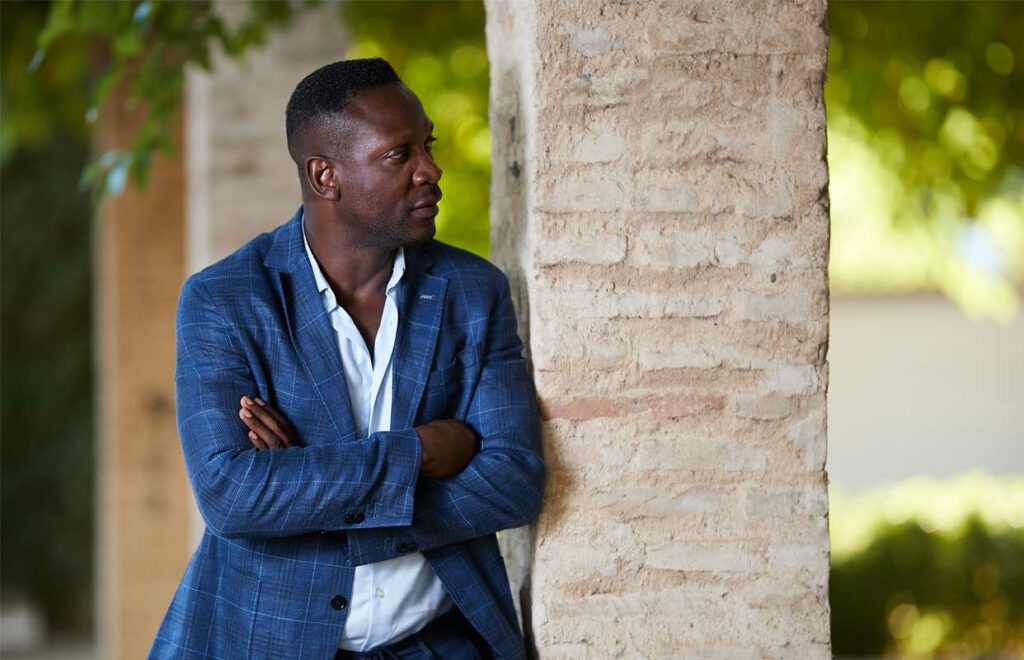
You could tell he was not full of hot air. Many times I have taken part in negotiations – I have always been present in all the contracts I have signed, and you can detect the feelings. You know if you’re being told something that later is not going to be delivered.
In that sense, Wenger made you feel secure that he would deliver what he was saying, and I went on to play 241 games for the club. If I hadn’t suffered that cartilage injury, I would have kept playing.
“Wenger not only cares about the player, but also the person”
I left that meeting with things clearly understood. I was completely convinced of the team project and what would be expected of me as a player. Besides, the terms of the contract that Arsenal were offering was far better than Real’s. I am not going to lie, that was important for me. Above that, though, it was about the project that Arsenal represented for a young player like me.
I was 23. I was convinced that it was a better opportunity than Real Madrid, because then it was very difficult for young talent to succeed there. Very few had made it.
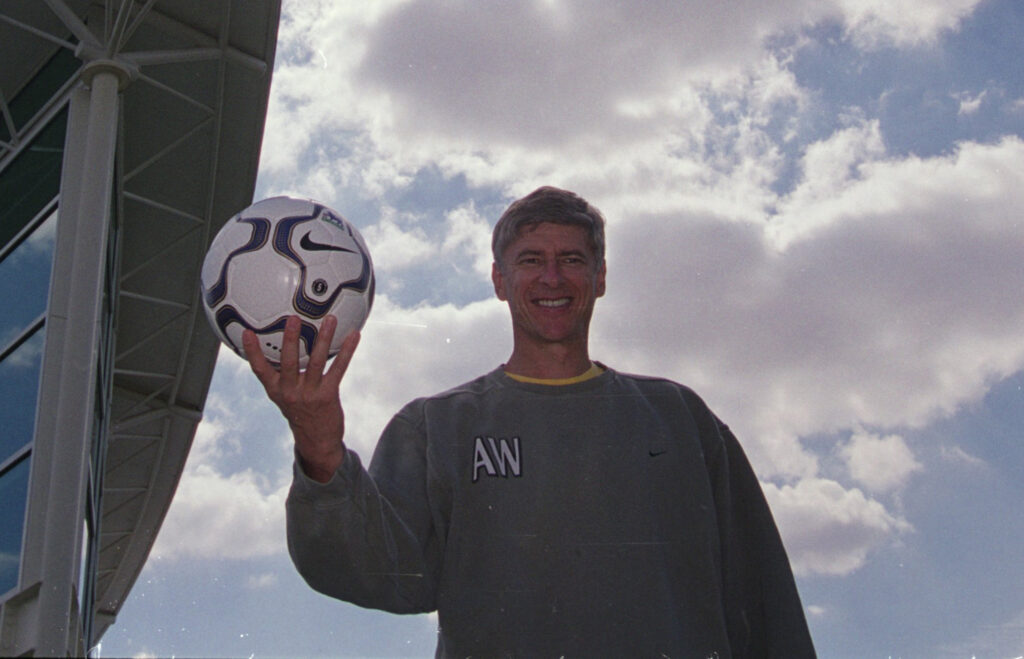
Once at the club, I had to go through an adaptation process. New country, new competition, new surroundings. In England, the foreigner is always questioned – it happened to Wenger, too – or more is demanded of him. But I also have to say that English fans know how to identify the players who give everything.
They can see the footballer who is totally involved in the institution, and they reward you for that. At the beginning they can be a bit reluctant, but once they get to know the player or the coach, English fans get completely behind you.
That was my experience. I wasn’t afraid of living with new teammates or of the English culture, however. I have a background that allows me to take on all kinds of challenges with integrity and the right mentality.
“In spite of those first months, England was unbelievable”
My main concern was my family, because my wife is from Seville. None of us could speak English, and I was a bit worried about that. The weather was also difficult: rain, cold, gloomy days. Very different from Andalusia. As we joke in Seville: “It’s like being killed pinch by pinch.”
At the beginning, that was the hardest part, and I told Wenger so. One day I came clean with him, because he is a manager who cares not only about the player, but also the person. He wanted feedback from his players, about what was happening on and off the pitch. For him, it was very important to also know the emotional side of the group.
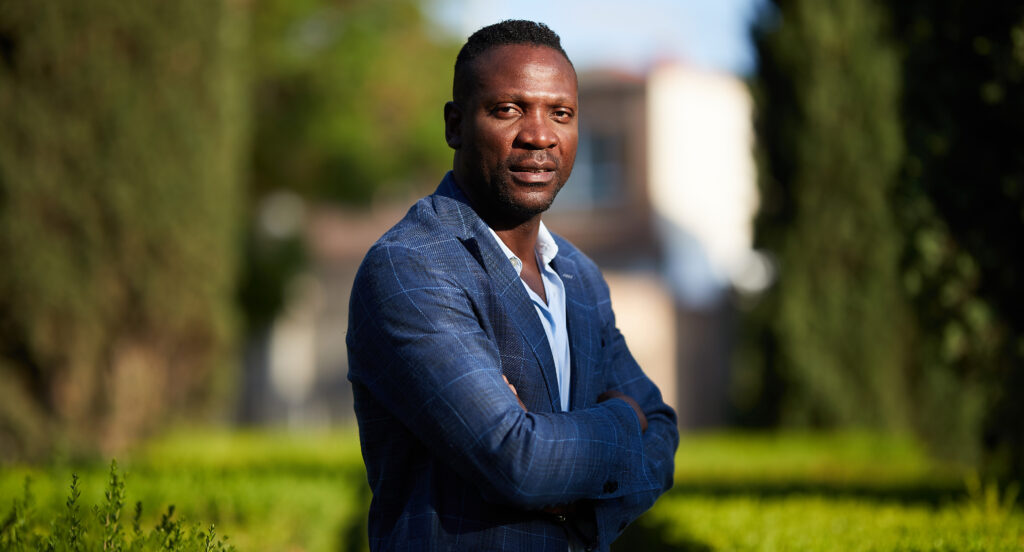
In spite of those complex first months, my experience in England was unbelievable. I enjoyed going to train every day; very demanding sessions, a lot of work.
Wenger would have us working in lines. In my case, as a full-back, I would work the defensive part. We would practice split-balls, always in real match-like situations.
“Bergkamp, Henry, Pires and Vieira had football in their brain”
The four men at the back, without the help of the defensive midfielders, trying to stop a wide attack, with their two inside midfielders. A ball loss in the opposition half, leaving four defenders against four forwards. Or attacks of eight against four…
How to resolve these situations? That was the question.
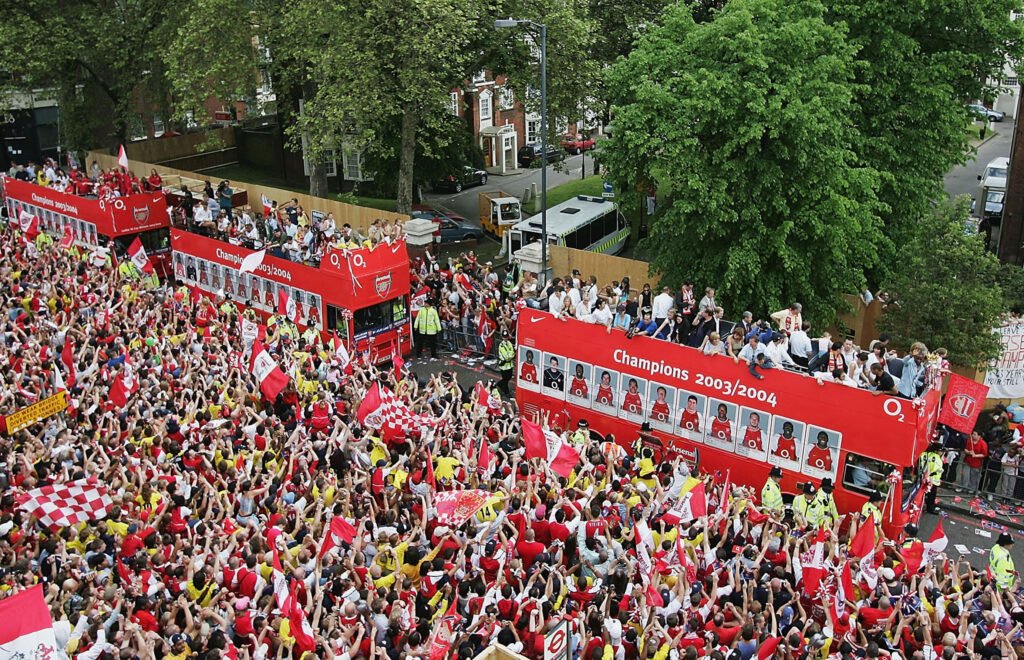
Wenger made us have good communication between the four at the back, and also the defensive pivot.
When you have drills about things that later happen in the matches, you know how to react to anything unexpected. Many of the things that we used to do, I understand now that I have studied them as a coach. You know why we were doing it, and why we worked so hard on it.
“We had several geniuses, who were far from egotistical”
Once we did our part of the job, and the ball was in the other half, we were calm, because we had attacking players who could generate results on their own. From a defensive position, it was difficult to find an explanation for the speed they had in executing a play or in making a decision. While you were thinking about it, they had already taken the next step.
Dennis Bergkamp (below right), Nwankwo Kanu, Thierry Henry (below, left), Robert Pires and Patrick Vieira were players who had football in their brain. They could anticipate anything. You can train and get better, but you would never get to the level they had.
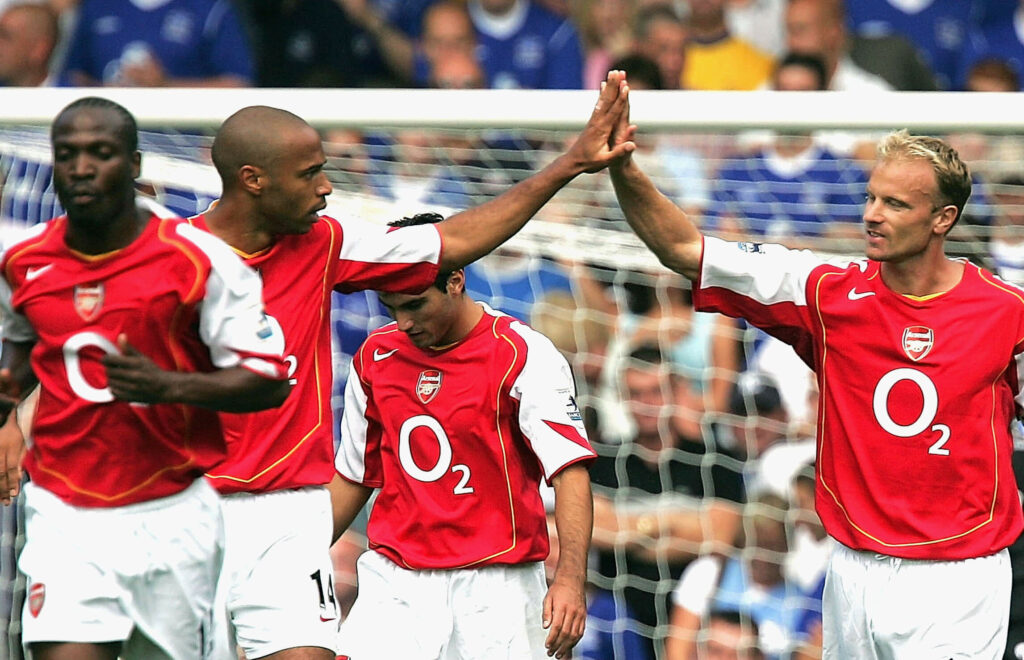
I always divide the good players: the cracks and the geniuses. We had several geniuses in that team.
His players were not individuals; each one of them was just one other part of a team with great values.
“Wenger mentioned that the team could get to be invincible”
Wenger always insisted that the strength of a team resided in the relationships that a coach enabled among the players.
“If there are good relationships in a team, in the end it is easier to reach the goals,” he would say.
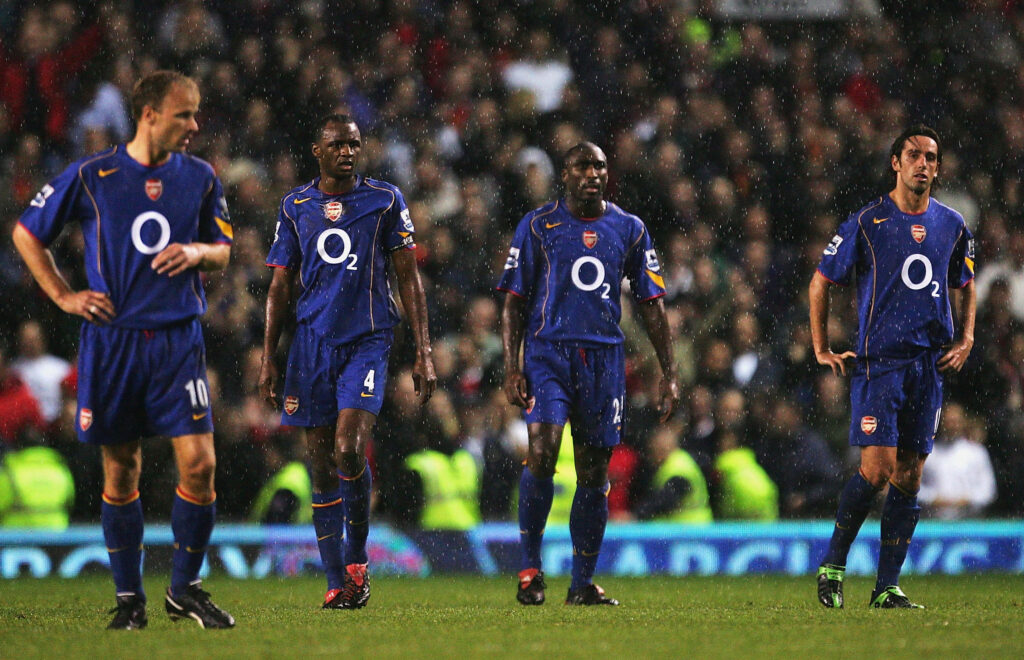
So we were all chasing the same thing, and that was the Arsenal of the Invincibles. To tell you the truth, we never felt under pressure to not lose during that unbelievable streak. The pressure, funnily enough, was there in 2001/02.
That year, we won the Premier League and the FA Cup, and Wenger mentioned that the team could get to be invincible. But then the team did feel the pressure. In fact, in 2002/03 we only managed to win the FA Cup.
“The match with Manchester United did us a lot of damage”
The following year, 2003/04, Wenger didn’t say anything about an invincible team. Nobody made any comments about it. Obviously, coaches know about their team's potential. Wenger and his staff knew what we were capable of, but nobody talked about it that season.
We took it one game at a time, and we made it to the end – we won the Premier League unbeaten. No one had done it before, and to this day no one has managed to do it again.
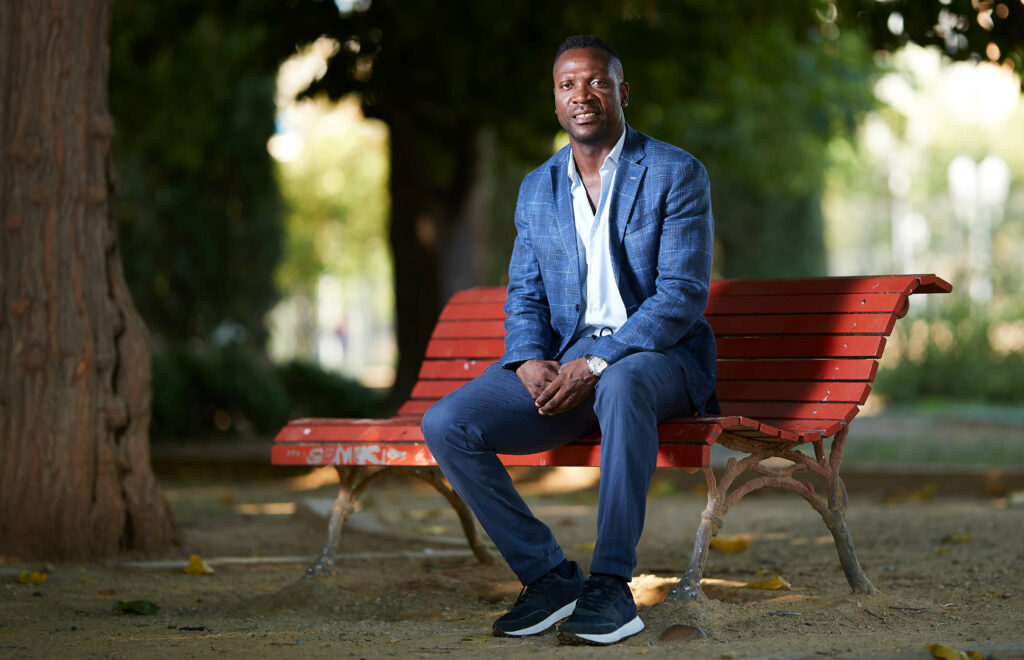
The defeat that put an end to that streak hurt us not so much because we lost, but because of how we lost. That match did us a lot of damage. A match in which Manchester United kicked us – especially José Antonio Reyes.
Gary Neville and co kicked him badly, and then the penalty against Sol Campbell. Nowadays, with VAR, they would never have called that a penalty.
“Why can Arsenal not win the Champions League?”
It was a hard defeat to take, but it didn’t take away our very competitive mentality. We had a group of super-competitive people. With players like that, you can recover pretty quickly from bad moments.
However, I still had one thorn in the flesh, and I think it’s the same for everyone who was a part of that team. I have talked to many of them about it. We couldn’t win the Champions League.
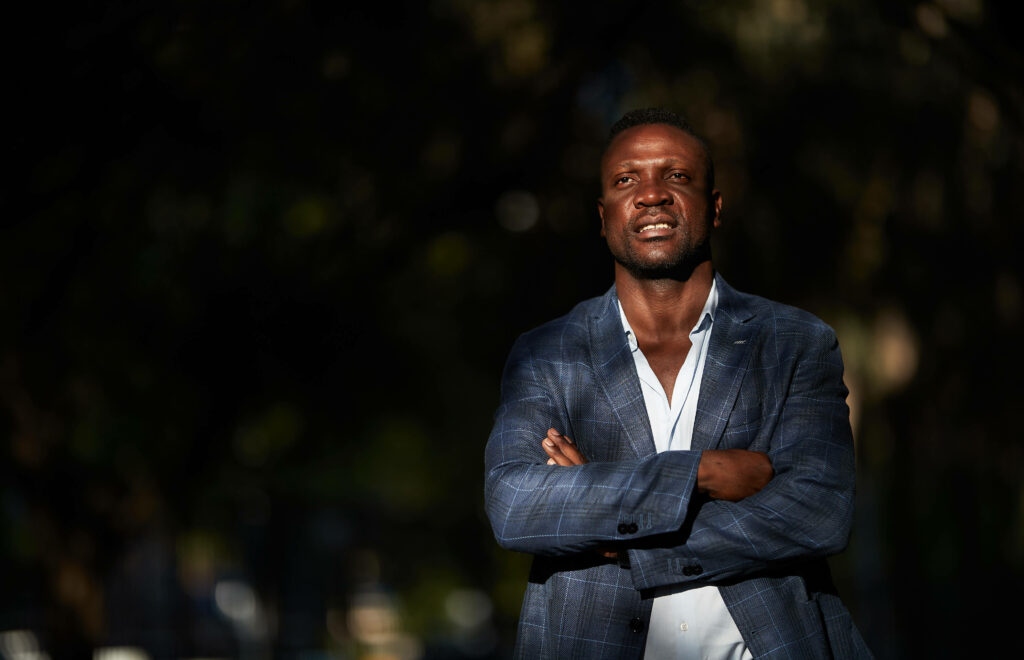
Why, if Arsenal can manage to do all that in the Premier League, can they not win the Champions League?
We were all wondering the same, and Wenger tried to get answers from the players during one of the pre-seasons. He talked to each one of us.
“These are players who smell blood – they see your weakness”
I was honest in my reply: “Coach, we are not ready.”
For some reason, the team wasn’t prepared to play abroad. The Champions League has nothing to do with the domestic league, or the UEFA Cup, or any other competition. In the Champions League, everything is decided by small details – something that is talked about so much in football, but which is totally true.
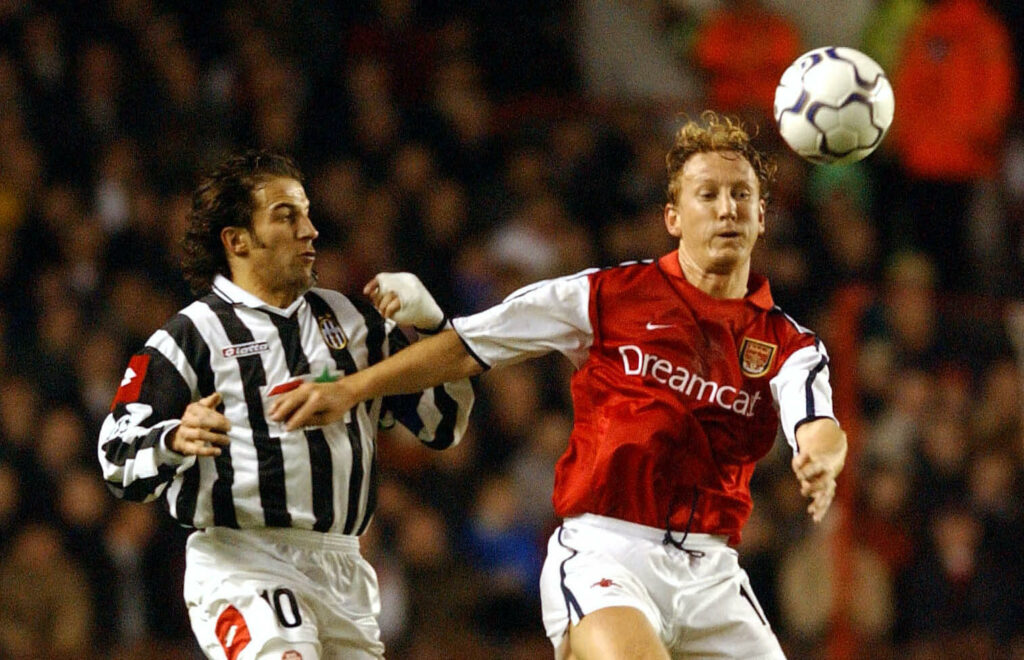
I remember watching Alessandro Del Piero (above) control the ball, and you already knew what the end would be, because these are players who are made of sterner stuff. Players who smell blood. They see your weakness, and they know if you are nervous, and before you anticipate marking them they have already killed you.
Even so, with several changes from the Invincibles, we managed to get to the final in Paris in 2006, against Barcelona. But once again, the little details were decisive. Had Henry scored in the first half – with that one-on-one against Victor Valdes – maybe the history would have been different, because we would have had a two-goal advantage. But that’s how football is.
“Football keeps kids away from other things we know exist”
We could not win the Champions League, but I am personally proud of being part of the history of a magnificent club such as Arsenal. The pride of being part of the Invincibles, the silverware we won, playing for an innovator like Wenger, and alongside footballers like Henry, Bergkamp and others.
Also, the pride of the fans, and the English culture, which I love. It is incredible to see parents with their children going to the stadiums and taking Saturdays as a family gathering.
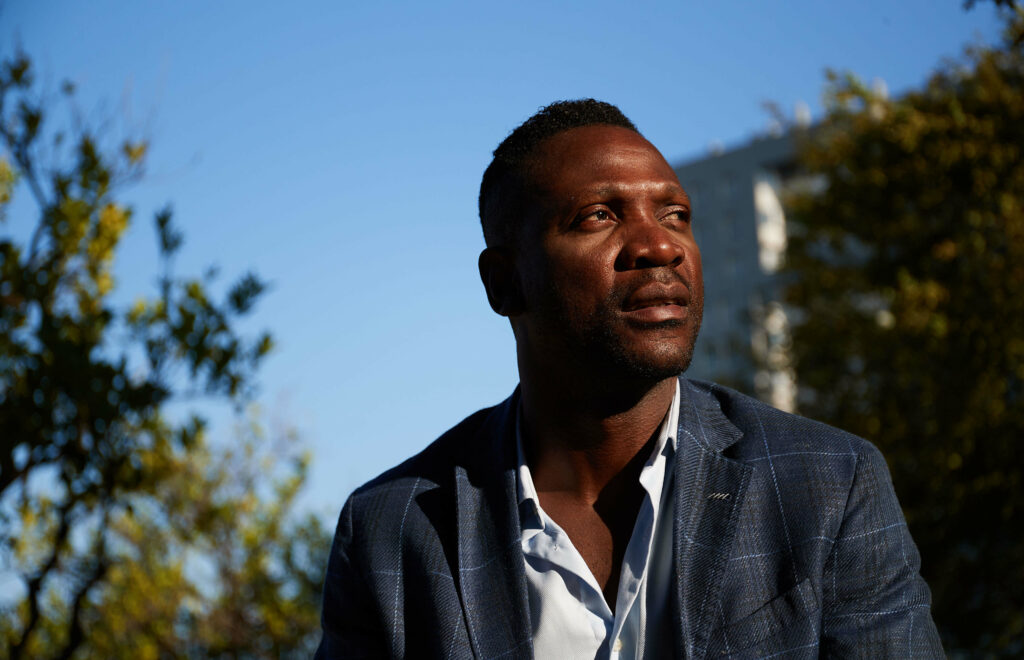
I’m back home now, in my neighbourhood, Montequinto. I have also decided to become a coach, and I want to work with grassroots football – a learning stage for me.
Knowledge is one thing, and another very different thing is practice. I believe that there must be a period of time between the beginning and reaching the top. A period in which you can acquire the experience that is required for the highest level, because it is not easy to be up there.
That is the reason I prefer to start in grassroots football – to gain that experience, and in an environment that I know very well.
But it’s not just about football. Many kids need support from people like us, who made it into professional football. They recognise us, and they know where we come from. In the end, we are just like them.
Football keeps them away from other things that we all know exist in the neighbourhoods. It allows them to focus on sports and to achieve their dreams.
To play at Sevilla, Levante, Mallorca. Or, why not, Arsenal.

Lauren Bisan-Etame


